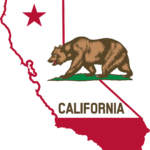 By: Gerald L. Maatman, Jr., Jennifer A. Riley, and Rebecca S. Bjork
By: Gerald L. Maatman, Jr., Jennifer A. Riley, and Rebecca S. Bjork
Duane Morris Takeaways: On October 3, 2022, the Supreme Court of the United States granted certiorari, reversed, and remanded a case seeking review of a motion to compel arbitration in a California Private Attorney General Act (“PAGA”) labor law case entitled Dolgen California, LLC v. Galarsa, No. 21-1444 (U.S. Order List, Oct. 3, 2022). Granting Dollar General’s specific request, the Supreme Court ordered the California Court of Appeal to reconsider its decision affirming a trial court’s denial of the company’s motion to compel arbitration. That court held that the waiver of representative actions in the plaintiff’s arbitration agreement was unenforceable under California law. This is only one of several cases pending in California courts involving arbitration agreements that waive an employee’s right to bring a representative action under the PAGA that are being revisited in light of the U.S. Supreme Court’s ruling in Viking River Cruises, Inc. v Moriana (No. 20-1573, June 15, 2022). As a result, employers will soon have a better understanding of how PAGA representative action waivers will be interpreted in California within the now-controlling framework of the Federal Arbitration Act.
The Holding In Viking River Cruises, Inc. v. Moriana
Earlier this year, on June 15, 2022, the U.S. Supreme Court issued its long-awaited ruling in Viking River Cruises, Inc. v. Moriana. Companies with California-based workforces watched the case closely because it represented an opportunity to clarify the extent to which a court-made rule established by the California Supreme Court back in 2014 could co-exist with the Federal Arbitration Act (“FAA”). The FAA has long been found to favor the enforcement of arbitration agreements, including waivers of class and other representative claims. But the California Supreme Court’s decision made it impossible for class waivers to be enforceable under state law as a result of its decision in Iskanian v. CLS Transp. Los Angeles, LLC, 59 Cal. 4th 348, 387-88 (2014) (holding that a “PAGA claim lies outside the [FAA]’s coverage because it is not a dispute between an employer and an employee arising out of their contractual relationship,” but is instead “a dispute between an employer and the state”).
In a complex and lengthy opinion, the Supreme Court held in Viking River that “the FAA preempts the rule of Iskanian insofar as it precludes division of PAGA actions into individual and non-individual claims through an agreement to arbitrate.” (Slip Op. at 20.) “This prohibition on contractual division of PAGA actions into constituent claims unduly circumscribes the freedom of parties to determine ‘the issues subject to arbitration’ and ‘the rules by which they will arbitrate,’ and does so in a way that violates the fundamental principle that ‘arbitration is a matter of consent[.]’” (Id. at 18 (citations omitted).) In short, representative PAGA claims can now be subject to waiver in an arbitration agreement because “state law cannot condition the enforceability of an arbitration agreement on the availability of a procedural mechanism that would permit a party to expand the scope of the arbitration by introducing claims that the parties did not jointly agree to arbitrate.” (Id.)
Dollar General’s Petition For Certiorari
Dollar General filed a petition for certiorari while Viking River was pending, expressly asking the Supreme Court to hold the petition pending a decision in that case. It requested that once Viking River was decided, the Supreme Court should at that time grant Dollar General’s petition, vacate the California Court of Appeal decision below, and remand the case to that court for reconsideration in light of Viking River (known to Supreme Court practitioners as a “GVR” order). The facts in the Dollar General case are strikingly similar to those at issue in Viking River, and the company’s petition described the question presented as “Does the FAA require enforcement of a bilateral arbitration agreement providing that an employee cannot assert representative claims, including under PAGA?”
The U.S. Supreme Court’s GVR Order
On October 3, 2022, the Supreme Court did what Dollar General expressly asked it to do. (See Order List, Oct. 3, 2022.)
As is typical with GVR orders, there is no explanation of the reasoning behind the order, except that the California Court of Appeal is instructed to apply the reasoning of Viking River on remand. The California Court of Appeal now will soon reconsider its affirmation of the trial court’s denial of Dollar General’s motion to compel the plaintiff’s claim to an individual, non-representative arbitration proceeding.
Implications For Employers
Employers have long known that if they have operations in California, special attention must be paid to state law provisions that impose restrictions on employment practices unlike those in any other state. Now that the U.S. Supreme Court has ruled that the FAA preempts the court-made rule of Iskanian that precluded splitting representative PAGA claims from individual claims, it is likely that California courts will modify their enforcement of representative action waivers in arbitration agreements. But because this is California, wary employers would be wise to stay tuned for further developments in this rapidly changing area of the law.
